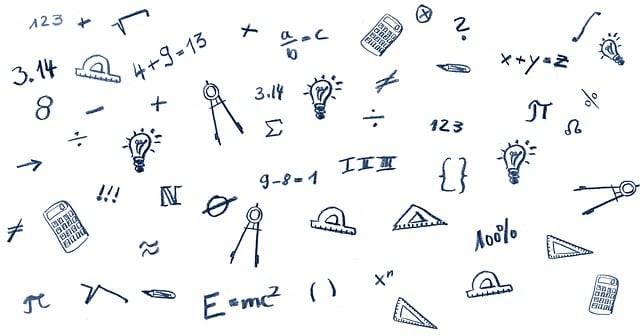No! I am not Prince Hamlet, nor was meant to be;
Am an attendant lord, one that will do
To swell a progress, start a scene or two,
Advise the prince; no doubt, an easy tool,
Deferential, glad to be of use,
Politic, cautious, and meticulous;
Full of high sentence, but a bit obtuse;
At times, indeed, almost ridiculous—
Almost, at times, the Fool.
-Eliot, “The Love Song of J. Alfred Prufrock”
Mathematical researchers experience severe isolation engendered by the constant pursuit of proofs and publications. In the global North, this isolation is frequently compounded by a paucity of tenure-track positions and the increasing adjunctification of the higher-education space. The dearth of academic positions in university mathematics is compounded by a seemingly ubiquitous institutional obsession with the efficiency of academic production. In the undergraduate education space, this production is measured reductionistically in terms of student success and retention metrics. In the research space, the content of the production and its attendant metrics differ. These include impact factors, objective success in facilitating conferences, demonstrated achievements in obtaining grants, and a litany of related pursuits. The punitive nature of these metrics is a precipitating factor in the poor placement of scientific Ph.D. graduates into the “good” tenured positions that provide a scintilla of security after the bitter slog of Ph.D. and postdoctoral specialization. Academic freedom is to be purchased at the price of a battle merely to possess the same. One might say that the hue and cry of circumstance prove beyond a reasonable doubt that the price of academic freedom is eternal vigilance, and that the price of the gilded indenture of tenure is to glibly regret that such vigilance was ever necessary.
Not one-tenth of the professional mathematical population of the world can afford access to mathematical journals, but those in the developing world are rightly required to know the same results as any other practitioners. Paywalls, like other walls, keep the rich content, the poor hungry, and others loathsomely apathetic. The mathematical profession has never had a systematic commitment to attain knowledge-equity within its own ranks. To suppose that everybody should have everything is not equivalent to asserting that everybody should not have something. For instance, it seems particularly striking that so few in the West cared or understood before the current political zeitgeist that Ukraine’s universities suffered from a chronic lack of funding for conference attendance, textbooks, articles, and research monographs. Few in the Western mathematical community cared about such equity then. Tenure was always too strong a god, even if its price was to subscribe and submit to journals that deprive the poor of any reasonable chance of access. Western mathematicians condemning adjunctification should boldly carry both banners, as both are noble ones. The same crusaders should equally ensure that their colleagues around the world should not have to suffer from the inaccessibility of resources necessary for mathematical progress. It is pharisaical to bemoan what one claims as injustice when almost none of the aggrieved can afford to read what is written of their plight and not written of their absence. It is an exigent moral imperative to recognize that such inequality demands a concerted war of resolution that begins by making peer-reviewed knowledge freely available to everyone, everywhere, via the expediency of modern technologies. It is high time to forget impact factors and paywalls and to begin to define mathematical life in terms of the moral essentials of its global prosecution. Mathematicians as a global scholarly community must craft a pitched battle against the yawning gap in global resource equity within our own profession.
The mathematician can work best in the anodyne exile of a cubicle as an offering made in total consecration to abstract scientific progress. It is thus that the empire permits “pure mathematical discovery” on its very pound and pence – the stuff, one may think at first, of mere benevolence and high-minded idealism. To recognize the moral indolence of the institutional mathematician in the face of perpetual resource inequalities between the developed and developing world is but the beginning of a candid account of the profession’s moral struggles. Even such glimmers of candor require a paradoxical mixture of justifiable self-loathing and hope for a more perfect future. Great benefactors of the sum of knowledge would not pretend to arrogate it to a single nation-state, under the bludgeonings of contracts and the constant threat of civil penalty for those who cannot afford access. However, the most foolish of exiles craft their prisons to look like homes until cell and hearth look really about the same. Because the mathematician is a creature of the King (both his wars and patronage), one might say that he is due, in recompense to his servitude, a certain proportionate liberty. The King may forget that the exile is free to craft designs on the virtue of captors and chance bedfellows – to craft a culture of virtue within exile, a kingdom of ends even when means are lacking. Peacetime is a high time to demand that everyone, everywhere, can read and reflect upon everything that is known.
Peace, however, is what pains the mathematician and politician together; for it is peace, not war, that has devalued and tokenized the American mathematical enterprise. Three decades ago, the “Pax Americana” heralded the collapse of the Soviet Union and the subsequent establishment of comparatively free markets in Europe. For the mathematician in America, the ensuing peace was pyrrhic at best. The darkest genius of human intellect is the adaptation of technologies of war from industries of peaceful thrift. War demands mathematics, and mathematics demands war. To the Cosmopolitan, there should be no relish in wars of rumors of wars. To the mathematician, at least historically, the same can be said of peace. Archimedes met his end in service to the same god – Sol Invictus – that every herald of the Empire ever fathomed relevant to his own territorial or imperial ambition. To stand away from the Syracusian figure was too radical a command for the politician-general, and it is just as well. The grim business of war and the panoply of its savage gods have always demanded that the mathematician and the politician collaborate to commit their felonies. Nix war, and one loses state sponsorship of science. The Soviets and Washington both showed us this premise as clearly in the 1990s’ as the trials of Archimedes did in ancient days. It is not mete that intimates should feign mere acquaintance. The mathematician and the politician must pretend ignorance of the other’s respective depravities. They are not engaged in coy glances and tender passions in public. To be too familiar would betray that Cosmopolitanism is not worth as much as Euro, crude, or even human lives. The former can be bought at the price of a soul, the latter in the form of state-sponsored practical mathematics that permits wholesale destruction of the enemies of the state with new weapons of war and espionage. At least permit friends and enemies alike to freely read the pittances and pennies thrown to cubicle-chained hounds of mathematical Enlightenment everywhere.
Dr Jonathan Kenigson, FRSA
Cosmopolitan, Beatnik, and Bum





























